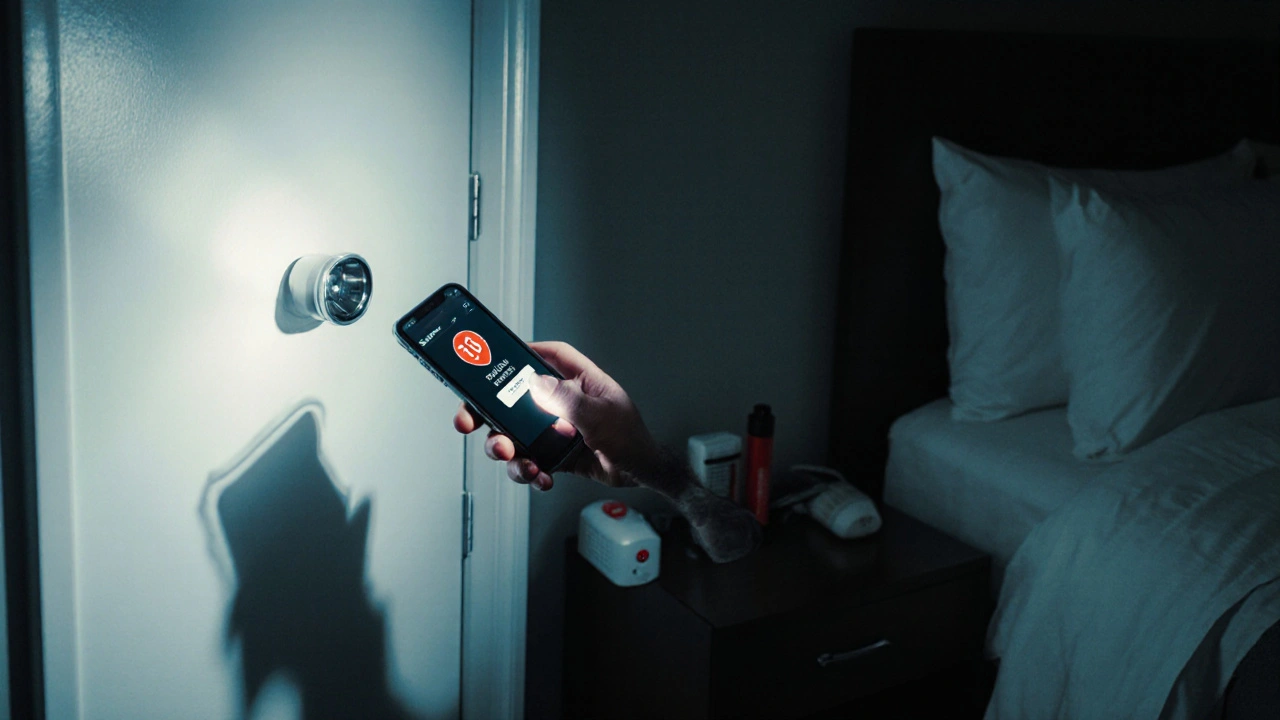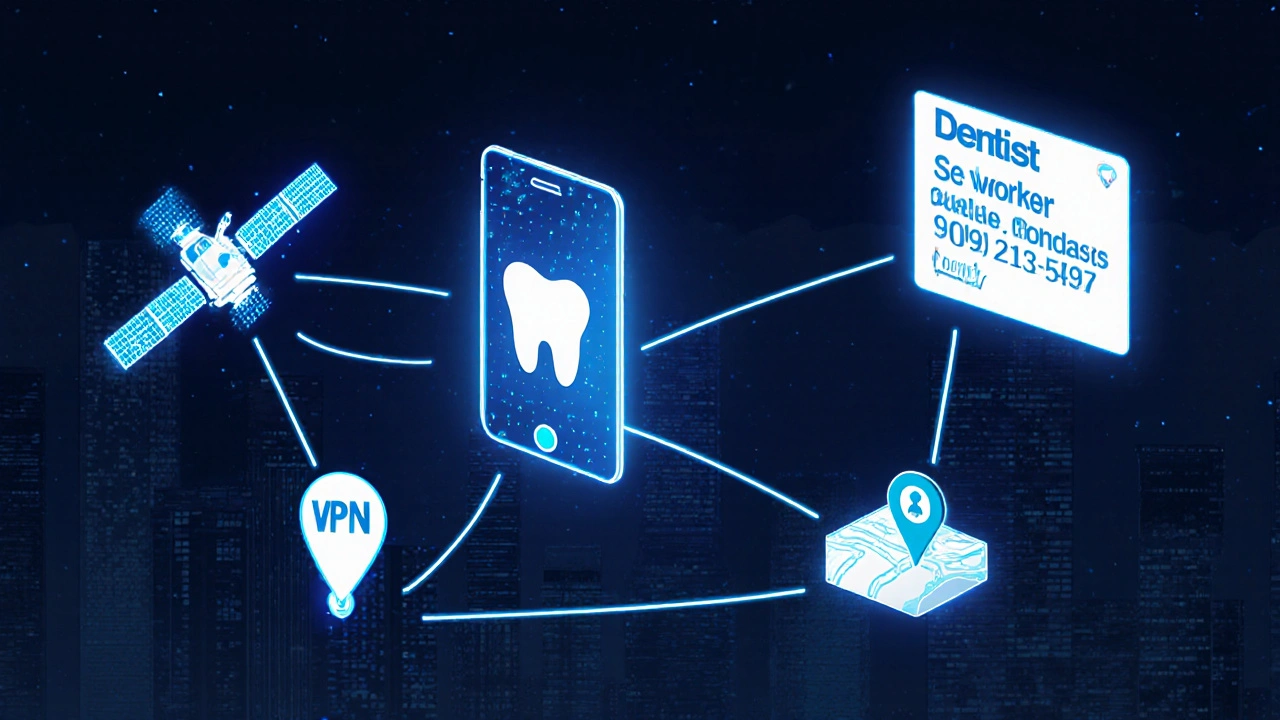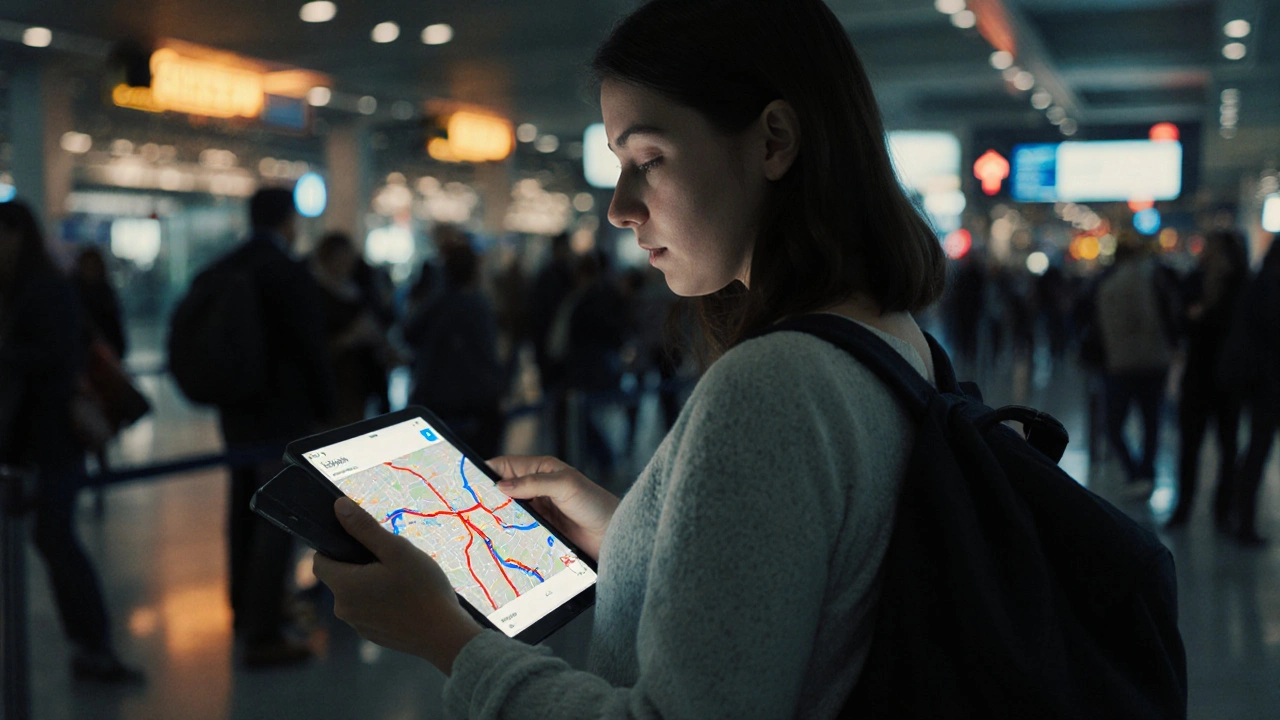Traveling while sex working isn’t just about packing a suitcase. It’s about staying alive. Every route you take, every check-in you make, every emergency plan you set up isn’t optional-it’s the difference between getting home and not. This isn’t fearmongering. It’s fact. In 2024, a survey of 1,200 independent sex workers across 17 countries found that 68% had experienced a safety incident while traveling for work. Half of those incidents happened in unfamiliar cities. You don’t need to be a pro to survive. You need a system.
Plan Your Route Like a Pro Driver
- Use Google Maps in offline mode. Download the entire city map before you land. No data? No problem. You still know how to get from the airport to your place.
- Avoid areas with known police crackdowns. Talk to other sex workers in that city. Ask: "Where do you avoid after dark?" Don’t rely on tourist blogs. They don’t know the real risks.
- Map two routes to every appointment: one fast, one quiet. The fast one gets you there. The quiet one gets you out if something feels off.
- Never go to a place you can’t see from the street. If the building has no windows, no visible entrance, or no way to see who’s inside before you knock-don’t go.
- Use a burner phone for client contact. Don’t use your personal number. Get a local SIM card when you arrive. Keep it cheap, disposable, and separate from your ID.
One sex worker in Berlin told me she always checks the building’s address on Google Street View the night before. If the door looks new, the windows are covered, or there’s no name on the buzzer-she cancels. Simple. Effective.
Check-Ins Are Non-Negotiable
Checking in isn’t about being watched. It’s about being found.
Set up a check-in system with someone you trust. Not your partner. Not your friend who’s always drunk. Someone reliable. Someone who will call the police if you don’t respond.
- Use a timer app like SafeTrek a mobile safety app that sends location alerts and emergency contacts if you don’t cancel a timer. Set it for 30 minutes after you arrive at a client’s place. If you don’t tap "I’m safe," it automatically texts your contact with your GPS.
- Text your contact a code word when you leave the appointment. "Coffee done" means I’m out. "Tea’s cold" means I need help.
- If you’re traveling internationally, use WhatsApp with encrypted messages. Turn off read receipts. Don’t say where you are. Say: "I’m in the red zone." That’s your code for "I’m at a sketchy place." Your contact knows what that means.
- Never check in on social media. No Instagram stories. No Facebook posts. Location tags are death traps.
A sex worker in Toronto lost her phone during a ride-share. She had no way to call for help. But because she’d set up SafeTrek with her sister, her sister got a ping at 1:17 a.m. and called the cops. They found her two blocks away, shaken but safe. She didn’t have to fight alone.
Emergency Protocols That Actually Work
What do you do when things go wrong?
Most guides tell you to "call the police." But if you’re undocumented, if you’re in a country where sex work is criminalized, if you’ve been threatened with deportation-calling the police might make things worse. You need options.
- Carry a personal alarm. Not the tiny keychain kind. Get a loud one-120 decibels or higher. The sound alone can scare off someone who’s about to attack.
- Keep a small flashlight with a strobe mode. In a dark room, a flashing light can disorient someone long enough for you to run.
- Have a pre-written emergency message saved in your notes app. "I’m being held against my will at [address]. Call [contact] and 911." Include your name, location, and a description of the person. Save it as "My Cat’s Name." No one will look there.
- Know your local sex worker hotline. In the U.S., it’s the SWOP Behind Bars a national organization that provides legal aid and emergency support to incarcerated and at-risk sex workers. In the UK, it’s The English Collective of Prostitutes a long-standing advocacy group offering crisis support and legal advice to sex workers. In Australia, call SWOP NSW a peer-led organization providing safety resources and emergency response for sex workers in New South Wales. Save their numbers in your phone under "Dentist."
- Carry a small bottle of pepper spray if legal where you are. In some countries, it’s banned. Check local laws before you pack it.
One woman in Amsterdam got trapped in a client’s apartment after he locked the door. She didn’t scream. She didn’t beg. She turned on her phone’s flashlight, aimed it at his eyes, and said, "I’m recording you. I just sent your face to my lawyer and the police." He opened the door. She walked out. No one knew she was in danger-until she was already safe.

Know Your Legal Reality
Every country treats sex work differently. What’s legal in one place is a felony in another.
In Germany, you can work legally-but you still get targeted by police during raids. In Canada, selling sex is legal, but everything around it (advertising, operating a brothel) is not. In Thailand, it’s tolerated but not legal. In the U.S., it’s illegal everywhere except some Nevada counties.
Don’t assume you’re safe because you’re not being arrested. Police often use minor charges-loitering, public indecency-to target sex workers. If you’re stopped, say nothing. Ask for a lawyer. Say, "I’m not answering questions without legal counsel." Write that down. Memorize it.
Keep a copy of your passport, visa, and any work permits in a waterproof bag in your luggage. Don’t carry them with you. If you’re arrested, you’ll need them. If you’re deported, you’ll need them. If you’re robbed, you’ll need them.
Technology as Your Shield
You don’t need fancy gear. Just smart tools.
- Use a VPN on your phone. It hides your location from clients and apps. NordVPN and ProtonVPN work well. Turn it on before you open any dating app.
- Enable two-factor authentication on all accounts. Use an authenticator app, not SMS. SMS can be hacked.
- Use a burner email for client communication. Gmail, Outlook, ProtonMail-doesn’t matter. Just don’t use your real name.
- Download the Honor a safety app designed by and for sex workers that allows anonymous check-ins and emergency alerts to trusted contacts app. It’s free, no ads, no tracking. Works offline.
- Use a power bank. Always. A dead phone is a dead end.
One sex worker in Mexico City said she uses a fake GPS app to show her location as "Hotel XYZ" when she’s actually at a different place. She doesn’t lie to clients. She just doesn’t give them her real location until she’s ready.

What to Do After a Bad Experience
If something happens-threats, violence, theft, harassment-you’re not broken. You’re not to blame.
First: Get somewhere safe. Your place. A friend’s. A 24-hour café. Don’t stay alone with your thoughts.
Second: Write it down. Date. Time. Location. What happened. What they said. What they looked like. Don’t edit. Don’t censor. This is your record.
Third: Contact your support network. Not your family unless you trust them completely. Contact your sex worker org. They’ve heard it all. They won’t judge. They’ll help you report it, if you want to. Or just help you feel safe again.
Fourth: Rest. Sleep. Eat. Don’t rush back to work. Your body and mind need time. You’re not weak for needing it. You’re smart.
You’re Not Alone
Sex workers travel. They move. They survive. They thrive. But they don’t do it alone. There are networks. There are apps. There are people who’ve been where you are.
You don’t need to be fearless. You just need to be prepared.
Plan your route. Check in. Have a plan. Carry your tools. Trust your gut. And if something feels wrong? Walk away. No matter what they say. No matter how much they pay. You’re worth more than their money.
Can I use my regular phone for client communication?
No. Using your personal phone links your real identity to your work. If something goes wrong, your phone number can be traced back to your home, your family, your job. Use a burner phone or a separate app like Signal with a fake number. It’s the simplest way to protect your privacy.
What if I’m in a country where sex work is illegal?
You still have rights. You can refuse to answer questions, ask for a lawyer, and refuse to sign anything. Never admit to anything. Say, "I’m not speaking without legal counsel." Keep your documents hidden. Know your local sex worker support group-they can help you navigate police encounters without escalating the situation.
How do I find safe places to stay while traveling?
Use platforms like Airbnb or Booking.com, but read reviews carefully. Look for mentions of "quiet," "private entrance," or "good security." Avoid places with shared bathrooms or common areas. If possible, ask other sex workers in the area for recommendations. Never stay in a hotel where the front desk asks too many questions.
Should I tell anyone I’m traveling for work?
Only if you trust them completely. Even then, you don’t need to say everything. You can say you’re traveling for "freelance work" or "remote consulting." Your safety is more important than their curiosity. Your check-in person should know-but only one or two others.
What’s the most important thing to remember?
Your safety is not negotiable. No client, no money, no situation is worth your life. If your gut says no, leave. If your phone dies, walk out. If the room feels wrong, go. You don’t owe anyone your presence. You owe yourself your survival.
If you’re planning your next trip, start tonight. Download SafeTrek. Write your emergency message. Set your check-in timer. Pack your power bank. This isn’t paranoia. It’s practice. And practice saves lives.
